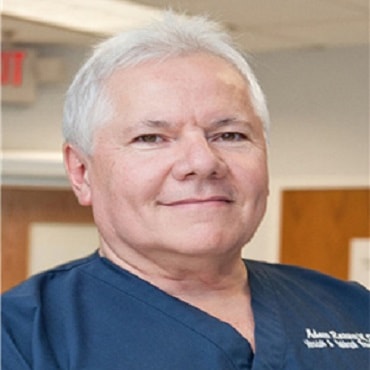Scientific Program

A Ramsey
Unit of the Chicago Incontinence Center, USA
Title: Treatment of posterior compartment prolapses with and without grafts
Biography:
Adam Ramsey is Board Certified with the American Board of OBGYN. He is a Fellow of the American College of OBGYN, a Member of the Royal New Zealand College of OBGYN / Australian College of OBGYN, a Diplomate of OBGYN from Otago University, Dunedin, New Zealand and a Diplomate of Obstetrics with the Royal College of Physicians of Ireland. His deep passion for the field of Urogynecology first began with his Research Fellowship in Urodynamics Studies with patients suffering from Overactive Bladder Syndrome at Massachusetts General Hospital, Harvard Medical School, Boston, Massachusetts, USA in 1983. He is affiliated with the American Urogynecological Society (AUGS), The International Continence Society (ICS), and many other educational bodies. His teaching experience has expanded from his work as a Clinical Tutor from Canberra, Australia to teach medical students at Sydney University, Australia, teaching the curriculum course of OBGYN and Urogynecology to Medical students at Midwestern University School of Medicine, Downers Grove, Illinois, USA; and as an assistant Professor in the Department of OBGYN at the North Chicago School of Medicine, Rosalind Franklin University, Chicago, Illinois, USA. Currently, He speaks professionally, representing diverse medical industries and presenting in many conferences and clinical meetings around the world.
Abstract
Objectives: To Describe the evaluation of posterior compartment defects. How to choose the surgical technique for your patient? Reiterate the evidence for the use or non-use of adjuvant grafts for repair of the posterior compartment.
Rectocoele: Prevalence POP 38-41%, Prevalence 12.9-18.6% (WHI), One of the most common gynecologic procedures, 40-69% of women undergoing PFD surgery, Prevalence expected to increase, Defect of the rectovaginal fascia.
Etiology of Rectocoele: During Valsalva (cough) the vagina becomes a high, pressure closed cavity due to BCM (bulbocavernousus) and PRM (puborectalis) reflex. Out of 23 women with rectocoele, 12 are healthy women, measured intra-vaginal, intra-rectal pressure, EMG responses and Decreased intravaginal pressure and longer latency of EMG response in women with rectocoele.
Treatment: Surgical repair, Management of constipation, Pelvic floor muscle therapy, Biofeedback, Balloon expulsion and Pelvic dyssynergia.
- Acute Hepatitis
- Alcoholic Hepatitis
- Autoimmune Hepatitis
- Chronic Hepatitis
- Giant Cell Hepatitis
- Hepatitis B
- Hepatitis C
- Hepatitis Epidemiology
- Viral Hepatitis
- Parasitic Hepatitis
- Ischemic Hepatitis
- Drug Induced Hepatitis
- Hepatitis Vaccine
- Advance in Hepatitis Testing
- Hepatitis Immunology & Vaccine biology

